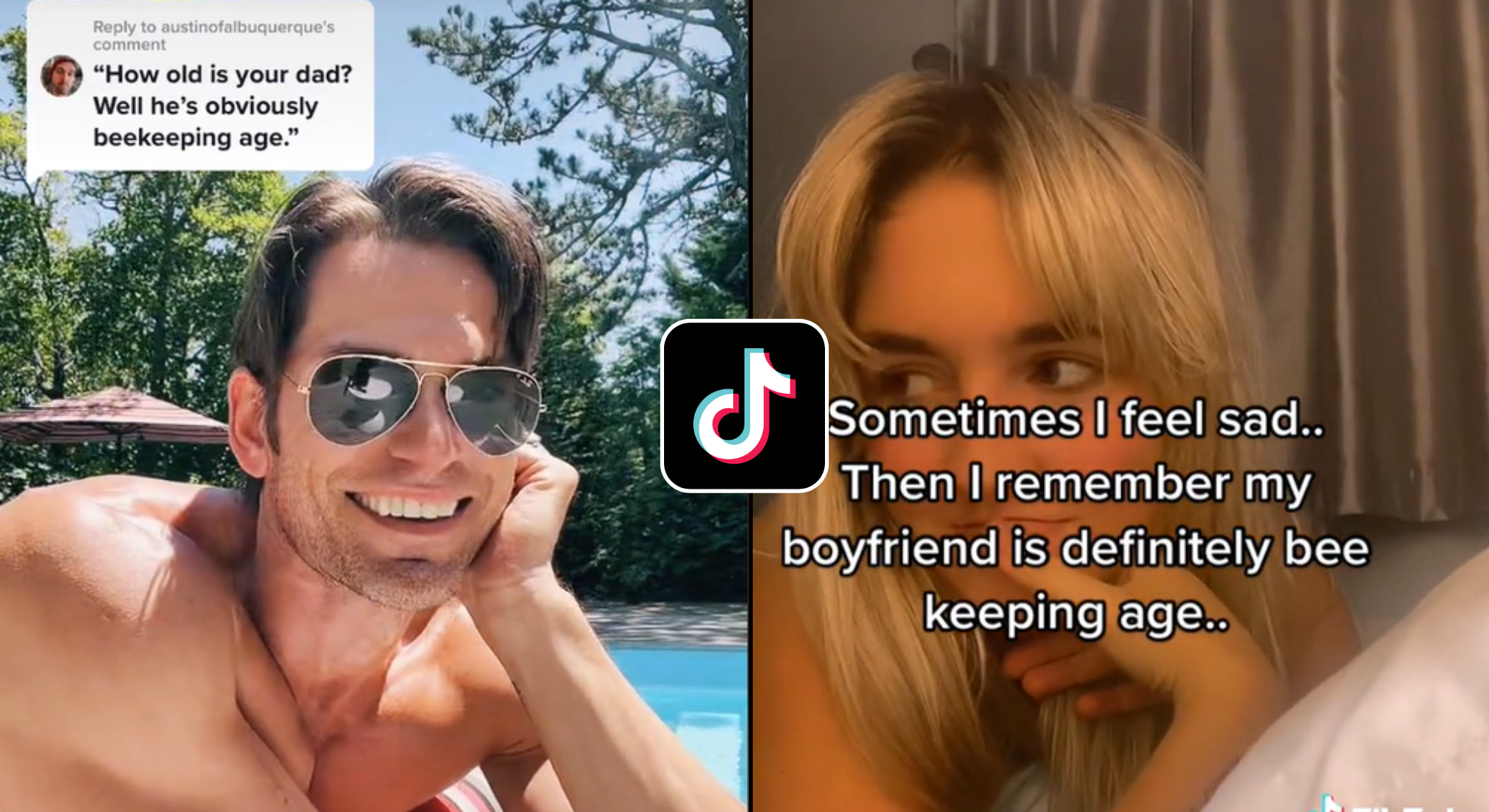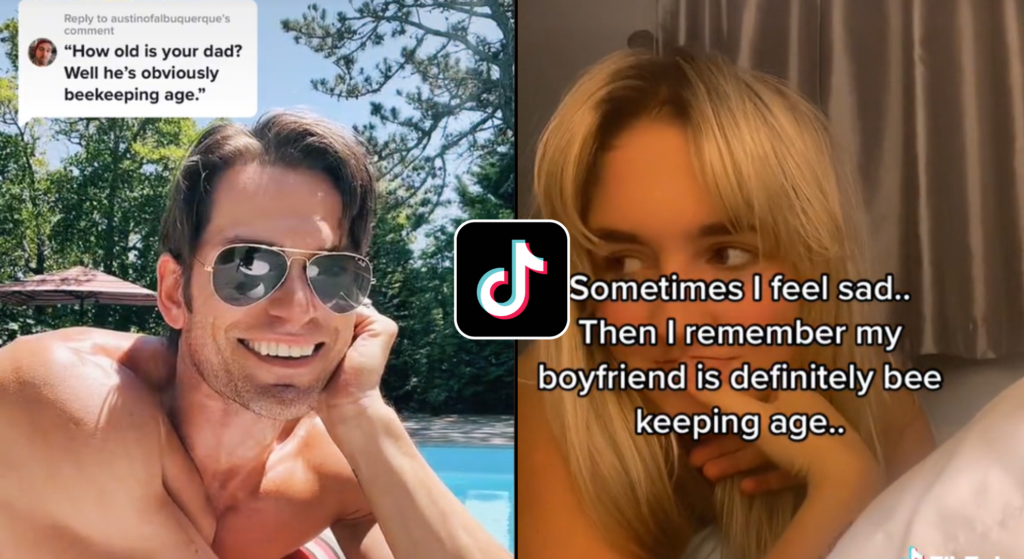
Do you ever wonder what “beekeeping age” actually means? Beekeeping age refers to the period of time a person has been engaged in the practice of beekeeping. Whether you are a seasoned beekeeper or just starting out, understanding the concept of beekeeping age can provide valuable insights into your own experience and knowledge within the field. In this article, we will explore the significance of beekeeping age and how it can influence your beekeeping journey.
Definition of Beekeeping Age
Introduction to Beekeeping Age
Beekeeping age refers to the age at which individuals begin their journey as beekeepers. It represents the starting point of a person’s involvement in the rewarding and fascinating world of beekeeping. Whether someone starts beekeeping at a young age or later in life, their beekeeping age plays a significant role in shaping their experiences, skills, and success in this endeavor.
Different Perspectives on Beekeeping Age
There are varying opinions on what constitutes the ideal beekeeping age. Some argue that starting young provides a longer time frame for learning and mastery of beekeeping skills, while others believe that the wisdom and experience gained with age contribute to success in beekeeping. Ultimately, the most crucial factor is the individual’s passion and commitment to the craft of beekeeping, regardless of their age.
Age Categories in Beekeeping
In the beekeeping community, individuals are often categorized into three age groups: young beekeepers (under 30 years old), middle-aged beekeepers (between 30 and 60 years old), and older beekeepers (above 60 years old). These categories provide a framework for understanding the different challenges and advantages that beekeepers may face at various stages of life.
Factors That Impact Beekeeping Age
Experience and Knowledge
Experience and knowledge are vital factors that can significantly impact beekeeping age. Individuals who have grown up in families with a long-standing beekeeping tradition may start at a younger age, benefiting from the transfer of knowledge and practical skills from older generations. Conversely, those with no prior exposure to beekeeping may require more time to acquire the necessary expertise before venturing into beekeeping.
Physical Fitness and Stamina
Beekeeping is a physically demanding activity that requires strength, stamina, and agility. Younger beekeepers often have an advantage in terms of physical fitness, allowing them to handle the rigorous tasks involved in hive maintenance and honey extraction with relative ease. However, regular exercise and maintaining a healthy lifestyle can contribute to the physical well-being of beekeepers of all ages, ensuring they can meet the physical demands of beekeeping.
Financial Resources
Beekeeping requires initial investments in equipment, hives, and bees, which can vary depending on the scale of the operation. Younger individuals may face financial constraints, whereas those in their middle age or older may have gathered sufficient resources to invest in beekeeping. However, with proper planning and budgeting, beekeeping can be accessible to beekeepers of any age, regardless of their financial situation.
Availability of Time
Time availability is a crucial factor in beekeeping age, as the demands of caring for bees require regular commitment and attention. Younger individuals may have more flexibility in terms of time, allowing them to dedicate themselves to the responsibilities of beekeeping. Middle-aged individuals may face competing demands from work and family, making time management a challenge. On the other hand, older beekeepers often have more free time available, enabling them to devote themselves fully to their beekeeping activities.
Commitment and Passion
Regardless of age, beekeeping requires unwavering commitment and passion. A strong dedication to the well-being of the bees and a genuine interest in the ecological impact of beekeeping are essential for success. Younger individuals who start beekeeping at a young age may find it easier to sustain long-term passion and commitment due to a deeper connection formed with the bees over time. Older individuals, drawing on a lifetime of experiences, may also exhibit a profound commitment to beekeeping.
Local Regulations and Support
Local regulations and support systems play a significant role in beekeeping age. Some regions have age restrictions on beekeeping activities, requiring individuals to be of a certain age to engage in the practice. Additionally, the presence of local beekeeping associations, mentorship programs, and government support can influence the age at which individuals choose to become beekeepers. Access to these resources can help aspiring beekeepers of any age overcome barriers and ensure a successful beekeeping journey.

Why Beekeeping Age Matters
Importance of Beekeeping Age in Beekeeping Success
Beekeeping age directly impacts the success of beekeepers. Starting at a young age allows individuals to develop a deeper understanding of bees, their behavior, and the intricacies of hive management. With more time for trial and error, young beekeepers gain valuable experience that facilitates their growth as skilled beekeepers. Conversely, older beekeepers may bring a wealth of life experience and wisdom to their beekeeping practices, contributing to their success.
Impact of Age on Adoption of Modern Beekeeping Practices
Beekeeping practices have evolved significantly over the years, with advancements in hive design, honey extraction techniques, and disease management. Younger beekeepers are often more receptive to adopting these modern practices due to their familiarity with technology and adaptability to change. Older beekeepers, while rooted in traditional methods, can also benefit from embracing innovation and integrating modern methods into their beekeeping practices.
Link Between Beekeeping Age and Long-Term Sustainability
Beekeeping plays a crucial role in ensuring the long-term sustainability of honeybee populations, which are essential for pollinating crops and maintaining biodiversity. Starting beekeeping at a young age creates a lifelong connection and dedication to the conservation of bees and their habitats. As beekeepers grow older, their continued involvement contributes to the sustainability of honeybee populations and the preservation of this vital ecological balance.
Role of Beekeeping Age in Community Engagement and Mentorship
Beekeeping brings people together, fostering a sense of community and cooperation. Regardless of age, beekeepers have the opportunity to engage with fellow enthusiasts, share knowledge, and mentor aspiring beekeepers. Young beekeepers can learn from the experiences of older generations, while older beekeepers can be inspired by the enthusiasm and fresh perspectives of the youth. Beekeeping age, therefore, plays a crucial role in building a vibrant and supportive community.
The Relationship Between Beekeeping Age and Success
How Age Influences Beekeeping Techniques and Skills
Beekeeping techniques and skills develop and evolve over time. Young beekeepers have the advantage of being able to absorb information quickly, adapt to new technologies, and learn from mistakes. With time and practice, they can refine their techniques and become skilled beekeepers. Older beekeepers may possess a deep understanding of bee behavior and their environment, enabling them to employ a more nuanced approach to hive management and honey production.
Impact of Beekeeping Age on Hive Management
Hive management is a critical aspect of beekeeping success. Younger beekeepers often have the energy and agility required to perform routine inspections, handle frames, and manage hive populations effectively. However, older beekeepers may leverage their experience and ability to read the subtleties of the hive, ensuring the well-being of their bees through attentive and thoughtful management practices.
Effect of Age on Honey Production and Hive Health
Age can influence honey production and the health of bee colonies. Younger beekeepers, with their fresh perspective and ability to adopt modern practices, may employ techniques that enhance honey yields. They may also be more adaptable when dealing with hive health issues, implementing timely interventions to prevent or address diseases. Older beekeepers, with their years of experience, can tap into their accumulated knowledge to develop effective strategies for maintaining hive health and maximizing honey production.
Role of Beekeeping Age in Beekeeping Business Success
Beekeeping can be a rewarding hobby or a profitable business venture. Young beekeepers who start at a young age have the advantage of time to establish their businesses, build networks, and refine their product offerings. Middle-aged beekeepers may leverage their professional connections and resources to create successful beekeeping businesses. Older beekeepers, with their accumulated expertise, may provide consulting services or mentor the next generation of beekeepers, contributing to the long-term success of the beekeeping industry.

Benefits of Starting Beekeeping at a Young Age
Learning and Adaptability
Starting beekeeping at a young age allows for a longer learning period. Young beekeepers have the opportunity to acquire a deep understanding of bees, their behavior, and hive management techniques over time. They can adapt to evolving practices and technologies, leading to more efficient beekeeping practices and better outcomes.
Physical Strength and Endurance
Beekeeping is physically demanding, requiring individuals to lift heavy hive boxes, handle frames, and perform various tasks that require strength and endurance. Young beekeepers typically possess higher levels of physical fitness, making it easier for them to handle these tasks without strain. Their strength and endurance contribute to their ability to maintain healthy hives and maximize honey production.
Life-Long Interest and Experience
Starting beekeeping at a young age fosters a life-long interest in bees and the natural world. The early exposure to the intricacies of beekeeping builds a deep connection and passion for this sustainable practice. As young beekeepers gain experience, they develop a profound appreciation for the role of bees in ecosystems and contribute to their conservation through responsible beekeeping practices.
Potential for a Career in Beekeeping
Starting beekeeping at a young age can open doors to various career opportunities in the beekeeping industry. Young beekeepers can establish themselves as beekeeping educators, consultants, or even honey producers. They can also contribute to research and innovation in the field, making significant contributions to the advancement of sustainable beekeeping practices.
Challenges Faced by Beekeepers of Different Ages
Physical Challenges for Older Beekeepers
As individuals age, they may experience physical limitations that can affect their ability to engage in physically demanding tasks, such as lifting heavy hive boxes or performing hive inspections. Older beekeepers may need to adjust their approach, utilize assistance when necessary, or focus on less physically demanding aspects of beekeeping, such as educational outreach or honey extraction.
Financial Barriers for Younger Beekeepers
Starting a beekeeping operation requires initial investments in hives, equipment, bees, and protective gear. Younger individuals may face financial constraints that make it challenging to acquire these necessary resources. However, with careful budgeting, seeking financial assistance through grants or loans, and exploring cost-effective alternatives, young beekeepers can overcome these barriers and build a successful beekeeping operation.
Time Constraints for Middle-Aged Beekeepers
Middle-aged individuals often have numerous responsibilities, such as work, family, and other commitments, that can limit the time available for beekeeping. Balancing these responsibilities can be challenging. Middle-aged beekeepers can prioritize their time effectively by planning their activities, delegating tasks when possible, and seeking support from family and friends to ensure sufficient time is dedicated to beekeeping.
Mental and Emotional Challenges at Different Ages
Beekeeping can present mental and emotional challenges for beekeepers of all ages. Young beekeepers may face self-doubt due to their limited experience or encounter setbacks that test their resilience. Middle-aged beekeepers may grapple with balancing the demands of beekeeping with other obligations, leading to feelings of overwhelm or burnout. Older beekeepers may confront the emotional challenges of transitioning out of active beekeeping or coping with the loss of colonies. Acknowledging and addressing these challenges is crucial for the overall well-being of beekeepers at any age.

How Beekeeping Age Varies Across Regions
Cultural Perspectives on Beekeeping Age
Cultural factors play a significant role in determining the age at which individuals engage in beekeeping. In some cultures, beekeeping is a tradition passed down through generations, with children learning from their parents or grandparents at a young age. In contrast, other cultures may have norms or social expectations that encourage individuals to start beekeeping later in life, reflecting a belief in the accumulation of wisdom and experience with age.
Inter-generational Beekeeping Practices
In regions where beekeeping is deeply ingrained in cultural traditions, inter-generational practices are prevalent. Older beekeepers pass on their knowledge, skills, and techniques to younger family members, ensuring the continuity of these practices over time. This inter-generational exchange fosters a sense of shared heritage and strengthens family bonds through the preservation of traditional beekeeping methods.
Youth Involvement in Modern Beekeeping Movements
While traditional beekeeping practices may have historically involved older individuals, modern beekeeping movements have seen increased involvement from youth. Environmental awareness, sustainability concerns, and the desire to make a positive impact have motivated young people to embrace beekeeping as a means of contributing to pollinator conservation and combating the decline of honeybee populations. These youth-led initiatives bring fresh perspectives and innovative approaches to beekeeping, driving positive change in the industry.
Tips for Beekeepers of Different Ages
Young Beekeepers
- Seek mentorship from experienced beekeepers to accelerate the learning process and gain valuable insights.
- Attend workshops, conferences, and beekeeping events to connect with the beekeeping community and expand knowledge.
- Utilize technology and online resources to access learning materials and stay updated on best practices.
- Join local beekeeping associations or clubs to network with like-minded individuals and exchange ideas.
- Start with a small number of hives and gradually expand as experience and resources grow.
Middle-Aged Beekeepers
- Prioritize time management to ensure a healthy work-life balance and allocate sufficient time for beekeeping activities.
- Leverage professional networks and resources to seek guidance and support from other beekeepers in a similar life stage.
- Consider partnering with younger beekeepers or apprentices to share workload and gain fresh perspectives.
- Develop a business plan that aligns with personal goals and allows for gradual growth and expansion over time.
- Take advantage of educational opportunities to continue learning and stay updated on the latest advancements in beekeeping practices.
Older Beekeepers
- Focus on sharing knowledge and mentoring the next generation of beekeepers to contribute to the sustainability of the industry.
- Gradually transition to less physically demanding aspects of beekeeping, such as educational outreach or hive management consulting.
- Prioritize self-care and physical well-being by practicing stretching exercises, maintaining overall fitness, and seeking assistance when necessary.
- Consider joining beekeeping associations or organizations specifically catered to older beekeepers to connect with peers and exchange experiences.
- Embrace the role of elder statesperson within the beekeeping community, offering guidance and wisdom based on years of experience.

Conclusion
In conclusion, beekeeping age refers to the age at which individuals embark on their beekeeping journey. It encompasses the unique experiences, challenges, and advantages faced by beekeepers at different stages of life. Factors such as experience, physical fitness, financial resources, time availability, commitment, and support systems impact beekeeping age. Starting beekeeping at a young age offers benefits such as learning and adaptability, physical strength, life-long interest, and potential career opportunities. However, beekeepers of all ages can find success and contribute to the beekeeping community with the right mindset and support. Understanding the relationship between beekeeping age and success, as well as navigating the challenges and tips specific to each age group, empowers beekeepers to embark on a fulfilling and meaningful beekeeping journey, regardless of their age. Embracing diversity in beekeeping age ultimately strengthens the industry and ensures the sustainability of honeybee populations for generations to come.